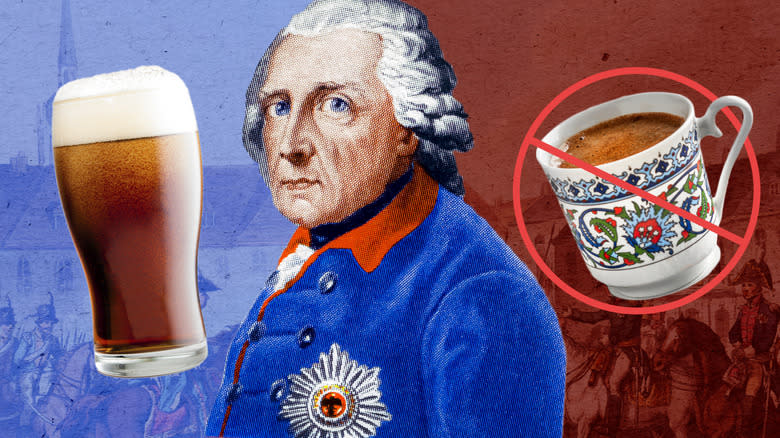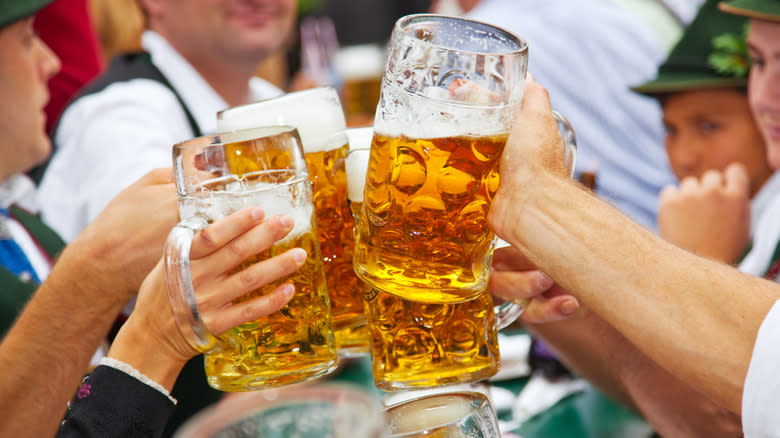Why Frederick The Great Of Prussia Banned Coffee In Favor Of Beer

- Oops!Something went wrong.Please try again later.
People like to joke about what they are like without their first cup of coffee, but what would you do if it was actually banned? We can all make light of our dependence on this pep-inducing compound because it's such an accepted and universal part of our culture, yet governments and national leaders didn't always see it as so benign. Coffee has actually been outright banned in countries around Europe and the Middle East numerous times. One of the most curious of these events happened in Prussia, a precursor to modern-day Germany, where it's leader Frederick the Great banned coffee by decree in 1777. And he did it for a reason that is almost baffling to modern notions of health and what's good for society: He wanted people to drink more beer.
The reasons Frederick wanted people to drink beer came down to a mixture of culture, xenophobia, and economics. Coffee was a relatively new beverage in Europe, only having been introduced in the previous century from the Middle East, and viewed with suspicion as a foreign import. The ruler saw beer as a traditional drink of Northern Europe, and a hearty and healthy beverage that sustain armies and citizens. He even said in a letter that "His Royal Majesty was raised eating beer-soup, so these people can also be brought up nurtured with beer-soup. This is much healthier than coffee." (via Mental Floss) But money was also a factor that clearly influenced his decree.
Read more: 31 Coffee Brands, Ranked From Worst To Best
Coffee Was A Suspicious Foreign Drink That Undercut German Beer Producers

Coffee was considered bad enough itself, but Frederick was also concerned that it had to be imported. Since coffee sales undercut local German beer producers, the Prussian leader thought that coffee was draining money from the economy and sending it abroad. Instead he tried through various efforts to make the production of coffee an exclusive drink for the rich, sold through government monopoly, hoping it would both stop cash from leaving the country and raise money for the state. These solutions also touched on a larger prejudice towards coffee that Frederick shared with other European leaders. They felt it was an unsafe drink for the poor that caused social unrest.
In Prussia, and places like France and England, coffee culture of the time was associated with political movements that grew out of coffeeshops. Monarchs thought that the effects of coffee were literally poisoning the minds of their subjects against them and inducing them to revolutions. Frederick was so worried about coffee consumption that he actually sent guards through city streets to "sniff" for the smell of coffee and root out illegal production. Those kinds of fears, which seem so silly today, show just how much culture and history guides our opinions of what are and aren't "acceptable" drinks.
Read the original article on Tasting Table.

